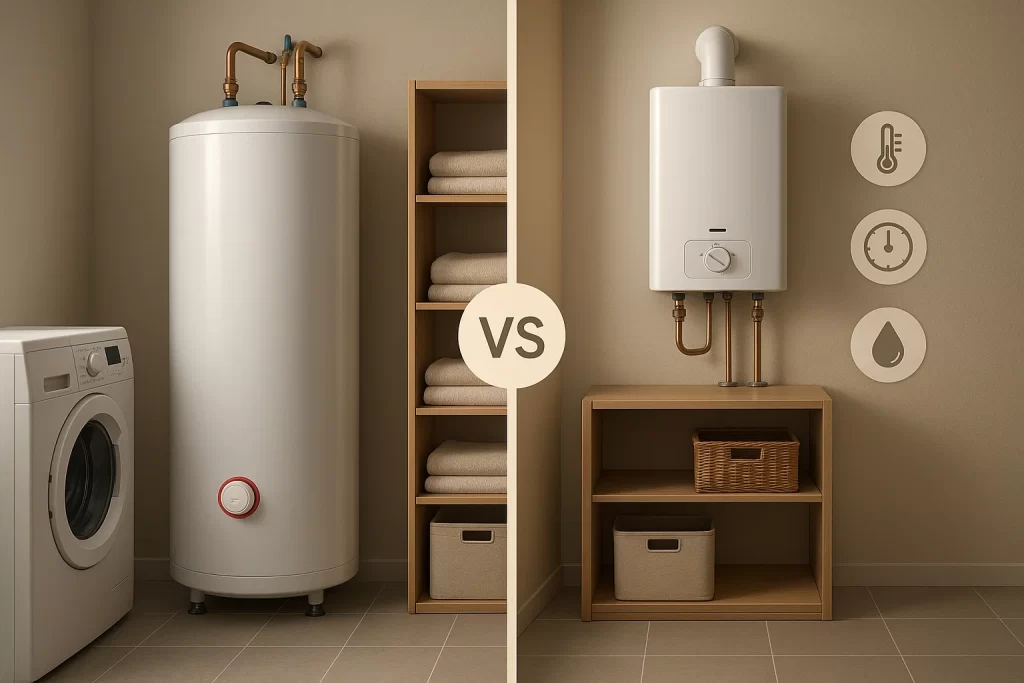Is it time to replace or upgrade your water heater in Blythewood, SC? One of the biggest decisions homeowners face during this process is whether to choose a traditional tank-style water heater or go with a tankless (on-demand) model.
Both options have their advantages, and the right choice depends on several key factors. These include household size, hot water usage, energy efficiency goals, and your upfront budget. Here’s a breakdown of what to consider before making your decision.

Household Size and Hot Water Demand
Start by evaluating how many people live in your home and how much hot water is used daily. Traditional tank water heaters store a set amount of hot water—typically 40 to 80 gallons—and can provide a steady supply for average households. However, once the tank is depleted, it takes time to reheat.
Tankless water heaters, on the other hand, heat water as it flows through the unit. This provides unlimited hot water, which is great for larger families or homes where multiple showers, laundry, and dishes may run at the same time. That said, they may struggle to keep up if demand exceeds the unit’s flow rate capacity, so proper sizing is key.
Energy Efficiency
Energy efficiency is another important consideration, especially as utility costs continue to rise. Tankless water heaters are generally more energy-efficient because they only heat water when needed, eliminating the standby energy loss associated with tank heaters that keep water hot around the clock.
According to the US Department of Energy, households that use 41 gallons or less of hot water per day can expect to save 24–34% more energy with a tankless unit. Even for larger households, the savings can range from 8–14%, depending on usage patterns and installation configuration.
Initial Cost and Long-Term Value
The upfront cost is where traditional tank water heaters usually come out ahead. They’re less expensive to purchase and install, making them a better short-term option for homeowners on a tighter budget.
However, tankless models, while more expensive initially, tend to have lower operating costs over time and a longer lifespan—typically 20+ years compared to 10–15 years for a tank model. If you plan to stay in your home for the long haul, the long-term savings can make up for the higher initial investment.
Space and Installation Requirements
If space is limited, tankless units have the upper hand. They’re compact and can be wall-mounted, freeing up valuable storage space in smaller homes or utility rooms. Traditional tank heaters are bulkier and require floor space.
Also keep in mind that switching from tank to tankless may require upgrading your home’s gas line or electrical system, which can add to the installation cost.
Which Is Right for You?
There’s no one-size-fits-all answer when it comes to water heaters. A smaller household with predictable water use and a limited budget might do just fine with a high-efficiency tank model. A larger family or energy-conscious homeownermay benefit more from going tankless.
Not sure which is best for your home? Our expert team can assess your needs and help you choose the right system for lasting performance and efficiency.
Contact Fulmer Heating & Cooling today with questions about your water heater in Blythewood, SC!




